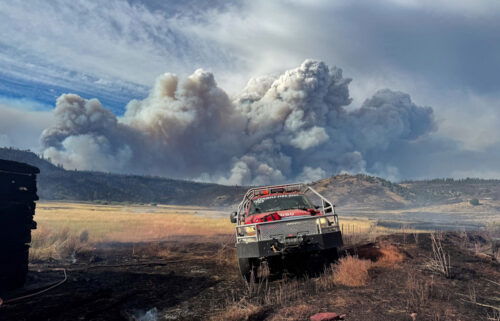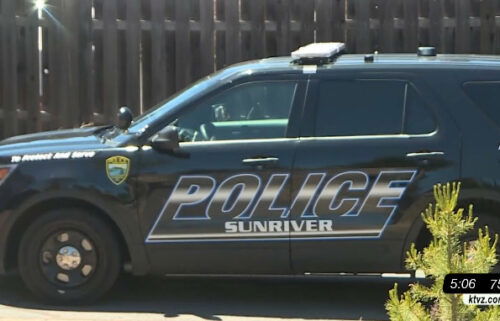Backlogged Oregon sexual assault evidence kits tested

(Update: Comments from DA John Hummel, Saving Grace official)
Central Oregon officials said Wednesday they were pleased to learn that the Oregon State Police have completed testing more than 5,000 backlogged sexual assault evidence kits that have been on hold for years. But a prosecutor said continued funding will be needed to prevent it from happening again.
Oregon has been working to clear up the backlog since 2016.
Now that they’re processed, Oregon has become one of the few states in the country to have totally eliminated the backlog of sexual assault evidence kits.
To clear up the backlog, the Oregon Legislature passed Senate Bill 1571, also known as Melissa’s Law in 2016.
The law requires that state police adopt rules to prioritize kit testing and that results are entered into a national DNA database.
Prior to that law, so-called “rape kits” — also known as SAFE kits, which stands for Sexual Assault Forensic Evidence — were only tested if they could potentially help solve a crime being investigated.
But Oregon isn’t out of the woods yet, according to Deschutes County District Attorney John Hummel. More money will need to be set aside in order to keep up with the testing needs.
“We had a backlog because the Oregon State Police Crime Lab was underfunded,” Hummel said. “We got this grant to take care of the backlog, but now we’re back to the status quo. And if the Oregon State Police lab continues to be underfunded, we’re just going to create a new backlog, so I hope the Legislature steps up and appropriately funds the crime lab,”
In Deschutes County, 28 kits had been waiting to be tested, most from the past three or four years. No cases have been solved from these test results.
According to Crook County District Attorney Wade Whiting, none of the waiting kits were from Crook County. NewsChannel 21 has no heard back from Jefferson County.
Ensuring that kits are tested is important not only to make sure sexual predators are kept off the streets, but as Trish Meyer, interim executive director at Saving Grace said, it’s also to support victims of sexual assault.
“It’s really tough for survivors who have reported the crime, gone through the extensive forensic exam to know that kit is lingering, waiting to be tested,” she said. “They have been through a very heavy recent trauma and they are waiting for a resolution to occur.”
In order for OSP to complete testing on all the backlogged kits, the state allocated $1.5 million to the crime labs to hire nine more analysts.
But now that Oregon is caught up, lawmakers will once again need to secure funding for testing during next year’s legislative session, for things to stay that way.
Wednesday’s news release from OSP:
Oregon State Police announced Wednesday that its Forensic Services Division has finished processing the backlog of thousands of old “SAFE – kits” (sexual assault evidence kits) sent in by police agencies around the state.
These kits — Sexual Assault Forensic Evidence kits (sometimes incorrectly called “rape kits”) are used to collect evidence from victims of sexual assault.
Prior to the Oregon Legislature’s passage of SB 1571 in 2016, Oregon police agencies submitted SAFE kits for DNA analysis only when the test results could potentially help solve or prove the crime being investigated. As a result, more than 5,000 kits were retained in evidence storage at police agencies around the state.
“In passing SB 1571, the Oregon Legislature recognized both the future crime-fighting value added by growing the database of ‘DNA fingerprints’ and the intrinsic value many survivors, victims, and victim’s families found in the testing, OSP said in its announcement, which continues below:
Oregon police chiefs and sheriffs partnered with the State Police to provide an accounting of sexual assault kits, so public safety leadership could assess the pending workload and establish new submission protocols to manage it efficiently.
The passage of SB 1571, and the Legislature’s support of additional staffing in the State Police crime lab, made it possible for the OSP Forensic Services Division to process thousands of SAFE kits over the last two years.
At the same time, with help from the Multnomah County DA’s Office, Portland Police Bureau and the district attorneys in Lane County and Marion County, grant funding was secured to pay for outside testing of the oldest kits from police agencies in those counties.
State Police scientists entered eligible “DNA fingerprint” profiles from both testing sources into the FBI’s national database (CODIS).
OSP Superintendent Travis Hampton said, “For the sake of justice and Oregon’s sexual assault survivors, Oregon’s public safety leaders made the submission and testing of SAFE kits a priority at all levels of law enforcement. This success story would not have been possible without the collaboration of Oregon’s chiefs of police, sheriffs, district attorneys, legislators, health workers, and sexual assault survivors and their advocates.”
Hampton added, “I’m very proud of the State Police forensic scientists in all our crime laboratories. They achieved remarkable results on a very demanding and technically challenging project.”
Gov. Kate Brown said, “As a longtime advocate for survivors of sexual assault, addressing the backlog of SAFE kits in Oregon has been a priority of my administration. This project is the perfect example of what can happen when diverse stakeholders work together to right a wrong. Although success cannot come overnight, key investments in funding and the steady work of our State Police forensic scientists show that success is achievable.”
By working together with other capable Oregon partners, Oregon has become one of the few states in the country to fully eliminate the SAFE kit backlog.



